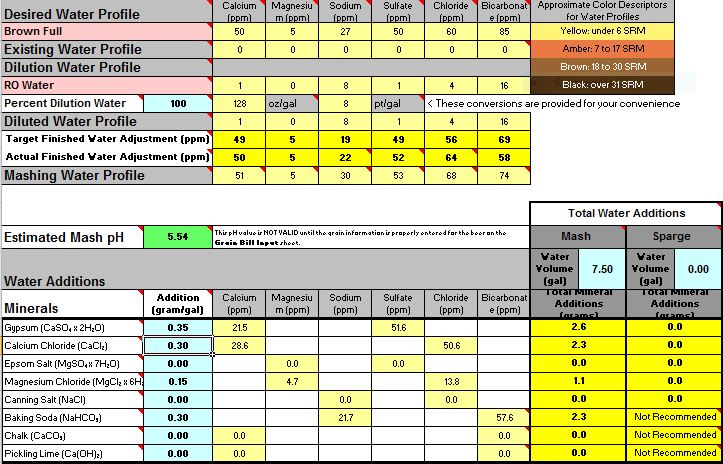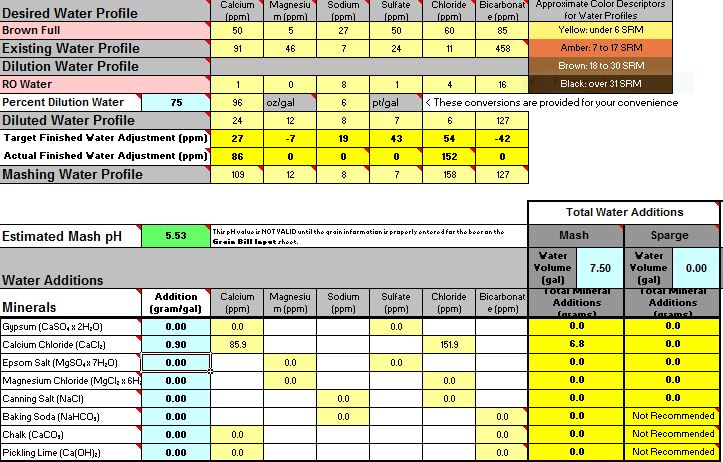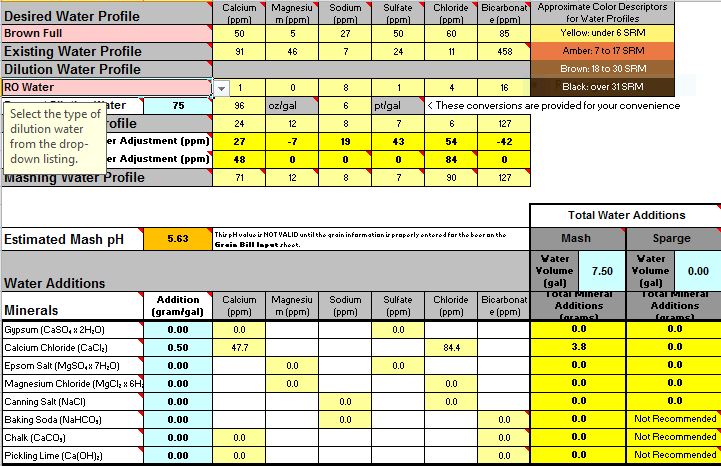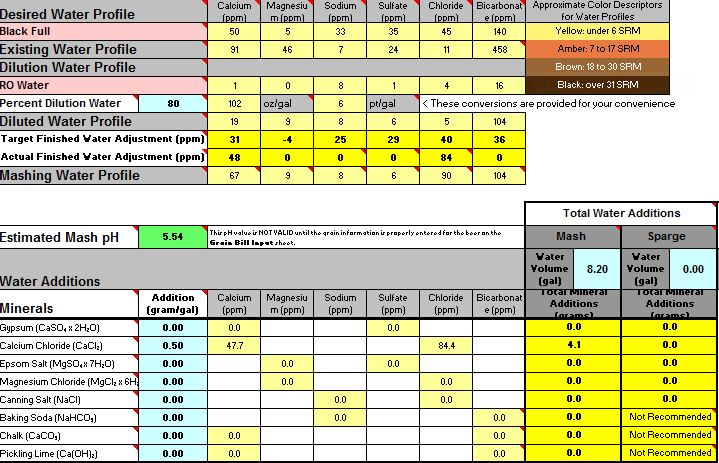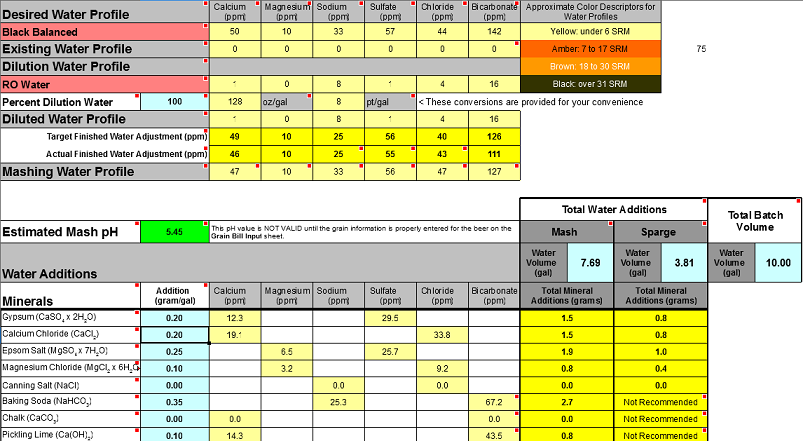Bigarcherynut
Well-Known Member
I have posted a few threads in regards to my well water and brewing. I had a water test run by Ward Labs and asked for help with water adjustments. I have had much help and most input was to use some or all RO water due to to the hardness and other levels of my well water. I recently purchased a RO system. I'm now playing with adjustments to the RO water to brew a Left Hand Nitro Stout. I have decided to use 100% RO water and start clean as a few have suggested. I'm using the program Bru'N Water.
I'm posting a snap shot of both my well water test and my attempt at adjusting 100% RO water for my stout. I selected a Brown Full profile as my starting point for my brew water.
Hoping for some input on how you feel my first attempt is. I'm very new at the chemistry part of brewing so keep it simple for me. Been doing my share of reading and starting to get an understanding of this process.
I'm brewing BIAB with no sparge.
Thanks.

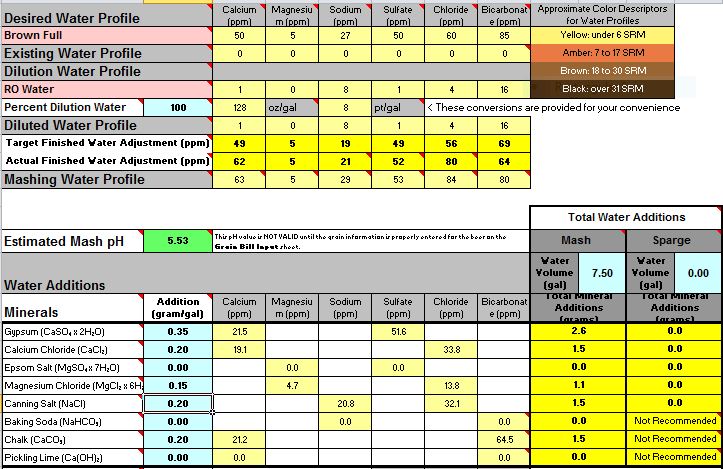
I'm posting a snap shot of both my well water test and my attempt at adjusting 100% RO water for my stout. I selected a Brown Full profile as my starting point for my brew water.
Hoping for some input on how you feel my first attempt is. I'm very new at the chemistry part of brewing so keep it simple for me. Been doing my share of reading and starting to get an understanding of this process.
I'm brewing BIAB with no sparge.
Thanks.




